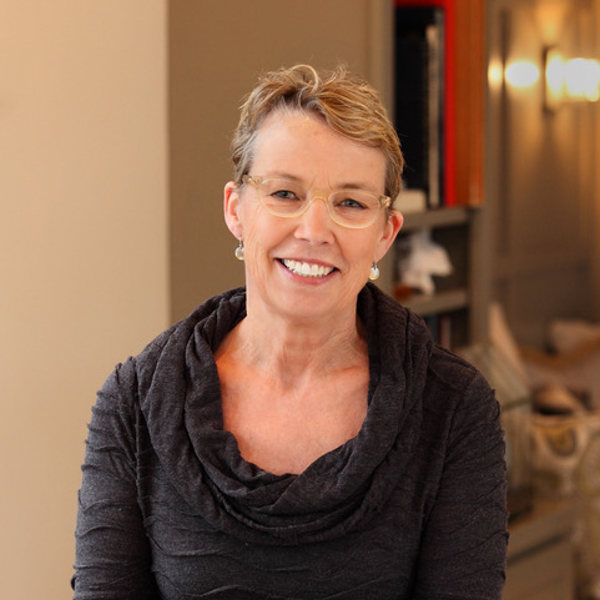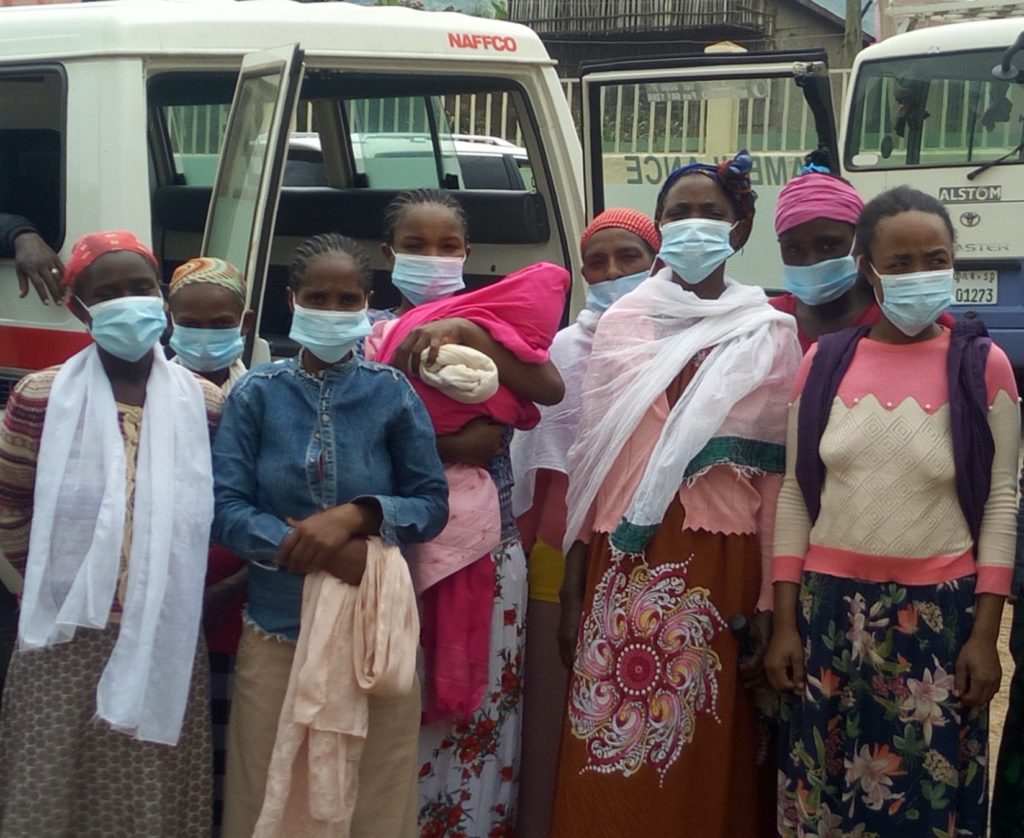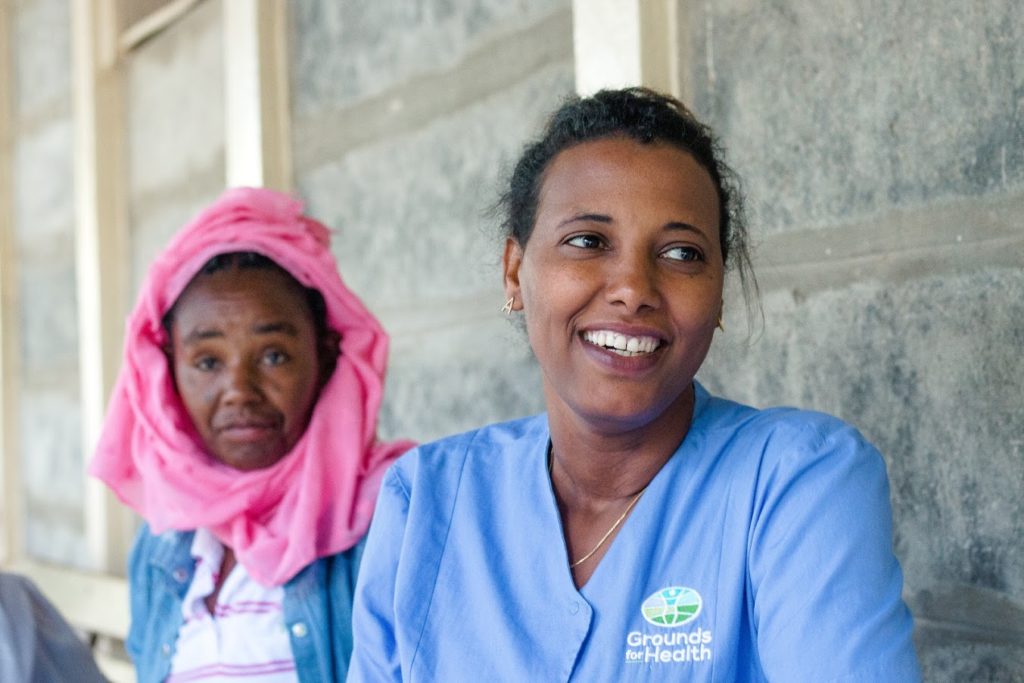The TogetHER Interview Revisited: Ellen Starr, Executive Director, Grounds for Health

October 13, 2021
In the months following the emergence of the COVID-19 pandemic in 2020, TogetHER reached out to leaders in global cervical cancer control to discuss challenges and provide their perspectives on COVID-19’s immediate impact on programs to safeguard women’s health in low-resource settings. The full set of interviews represents a wide breadth of voices, from global multilaterals to community-based efforts.
The pandemic and the world’s response have evolved in the past year, from the release and inequitable distribution of COVID-19 vaccines, to the emergence of the Delta variant, to a number of rolling regional outbreaks. The past year has also seen the world commit to the global elimination of cervical cancer – the first ever strategy to eliminate a cancer – and the release of new World Health Organization guidelines emphasizing HPV testing as the preferred method of screening.
TogetHER asked a select few participants in last year’s interviews to revisit the topic and provide perspectives on how their own work has changed in the last year. Our first installment of this retrospective series features Ellen Starr, Executive Director of Grounds for Health. Header and headshot photo credit: Grounds for Health
Since this time last year (September 2020), what impact has the COVID-19 pandemic had on your programs, specifically cervical cancer prevention services (HPV vaccination, cervical screening, treatment or other follow up)?
We believe strongly that women should not be allowed to die from a preventable disease despite the urgent and necessary focus on ending the COVID-19 pandemic. That said, the community-wide presence of the virus has had a great deal of impact on service provision within our programs and the public health sector.
Grounds for Health trains and supports providers to offer screen and treat services in public health facilities in rural communities. Our staff, and the clinicians we have trained, also provide services through an outreach campaign model. Large clinical and community health volunteer trainings and screen-and-treat campaigns have had to be delayed or adapted to ensure social distancing during the pandemic.
Administrative delays at every stage, from manufacturers through customs, have also had a great impact on the procurement of equipment and supplies, affecting our ability to introduce or expand their use.
Finally, we work specifically in rural coffee-growing communities and receive much of our funding from the coffee industry. The impact of the pandemic has been substantial on many coffee businesses. We are grateful that our funders have stood by us to the extent that they can during this challenging time.
How have your programs evolved to sustain services and/or get them back on track as it has become clear that COVID-19 will continue to have an impact? Are there shifts you have made in programming that have actually resulted in greater impact?
We have seen greater impact in our programs, both in terms of increased numbers of women who receive cervical cancer prevention services and the value we add to community education. We have increased the frequency of our screen and treat campaigns while decreasing their size for safety reasons. This has proven to increase interest and momentum within our communities. Coupled with a geographic expansion that occurred prior to and during the pandemic, we have successfully continued our work with increased productivity overall.
Secondly, we are expanding our use of thermal ablation and introducing HPV self-sampling to our clinical protocols. These technologies have been endorsed by the WHO as a means of achieving the ambitious yet essential elimination of cervical cancer. Fortuitously these screening and treatment modalities can minimize interpersonal contact, making them especially appropriate at this point in time.
Finally, while the COVID-19 pandemic is frightening and makes our work more challenging, it has given our staff an opportunity to educate and model safe practices. Our staff report that they feel more purpose and joy in their work because they are helping families and communities avoid COVID while continuing to save women’s lives through the prevention of cervical cancer.

“I believe we have an obligation to take advantage of our reputation as respected providers within the community, and with our national and regional health administrators, to address the pandemic while carrying out our primary work in cervical cancer.“
Photo credit: Grounds for Health

What has the last year taught you about your work?
This past year has reinforced for me the fact that we cannot take anything for granted, in our homes, our communities or our work. At Grounds for Health we will continue to find new and better ways to approach our work, even when faced with the challenges of a pandemic.
Providing quality health care in LMICs requires flexibility, adaptability and commitment. Our team of in-country staff have always had this skill set and our productivity has benefitted. These same skills have resulted in continued success during a pandemic. The last year has taught our staff that we are more adaptable than we knew and that these characteristics will support our continued success in the years to come.
I believe we have an obligation to take advantage of our reputation as respected providers within the community, and with our national and regional health administrators, to address the pandemic while carrying out our primary work in cervical cancer. Field staff have successfully incorporated the modeling of safe practices and the correction of misinformation into their work every day. This will be a priority of ours for as long as it is needed.

“At Grounds for Health we will continue to find new and better ways to approach our work, even when faced with the challenges of a pandemic.”
Photo credit: Grounds for Health

What has kept you and your team motivated during the past year?
In many different ways we have become a stronger team as we manage the challenges of living and working through a pandemic together. We have remained motivated by:
- The women we treat, and the pride we have in not abandoning them during a pandemic.
- The knowledge that we have the ability to have an impact on the spread of COVID-19 by virtue of the respect we have gained over years of work in our communities.
- The excitement that comes from introducing new and improved methodologies in screening and treatment that will improve accuracy, efficiency and patient satisfaction while decreasing the risk of transmission of COVID-19.
Click here to read Ellen Starr’s original interview from 2020. Learn more about Grounds for Health’s cervical cancer prevention programs here.

Ellen Starr is a Women’s Health Nurse Practitioner and the Executive Director of Grounds for Health, an international NGO focused on increasing coverage of cervical cancer secondary prevention in the remote coffee growing regions of the world with programs currently in Ethiopia and Kenya. She worked as a clinician at Planned Parenthood of Northern New England for over 30 years and ultimately became the Vice President of Health Center Operations. Ellen holds a BA from Middlebury College and an MSN from Massachusetts General Hospital Institute of Health Professions with a specialty in women’s health.
